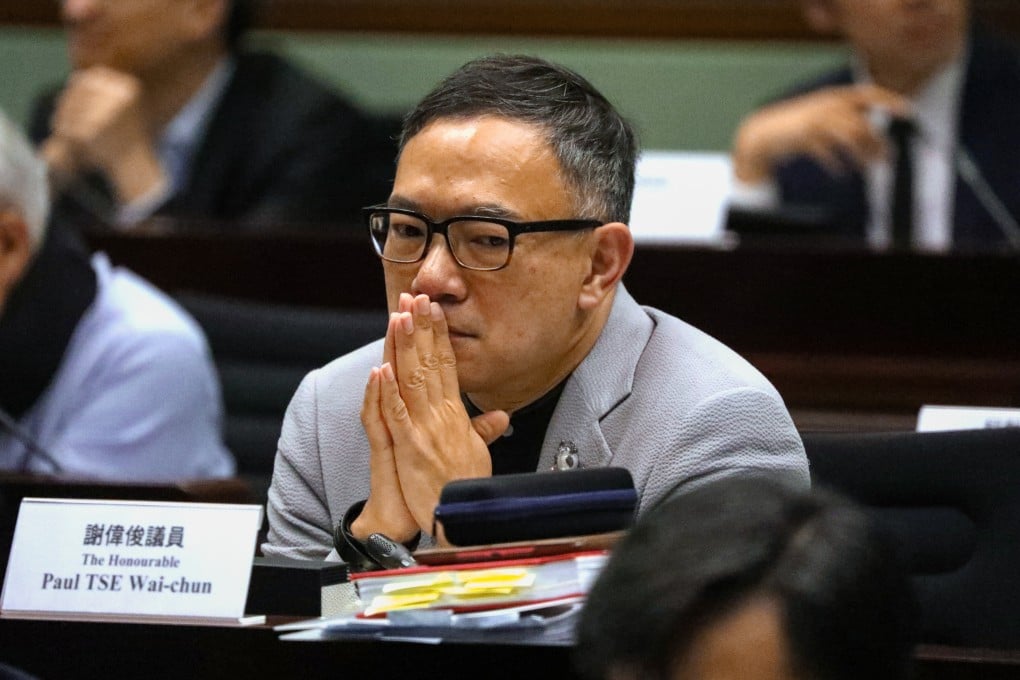Hong Kong lawmaker Paul Tse adds disclaimer to Facebook account saying ‘criticisms’ meant to improve government policies, not create hatred
- Lawmaker says he added disclaimer as ‘precaution’ and out of ‘prudence’ in light of new domestic national security law enacted last month
- Disclaimer says ‘all criticisms are intended to raise questions and suggestions for improvement’

Paul Tse Wai-chun, who earlier shut his account before reactivating it, told the Post on Sunday he added the disclaimer as a “precaution” and out of “prudence” in light of the new Safeguarding National Security Ordinance enacted last month, which made the “net” wider now.
“As a lawyer, I will also advise my clients to exercise precaution over the new law, and so I do the same for my own Facebook page,” he said.

In a post on Saturday, Tse said the content on his Facebook page was for record-keeping only.
“All criticisms are intended to raise questions and suggestions for improvement, or to advocate for the central and local governments’ policymaking through legal channels,” he wrote.
“It is absolutely not my intention to create any hatred, contempt or betrayal of the national system, institutions, or the constitutional order, administrative, legislative or judicial organs of the SAR.”
Tse also disabled the function for people to leave comments on his page.